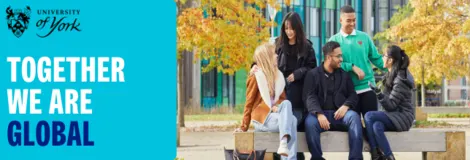You have finally done the hard work of creeping through all the coursework, late-night juggernaut with books, barely three-hour sleep before exams, project work, internal exams, vivas, more than 30 university exams over the span of 3 or 4 years; it’s time to celebrate and that too in grand style. A lot of reasons to be cheerful, right? But a lot of reasons to be worried about as well. So, the big question is what to do after graduation?
According to Indian Higher Education statistics, nearly 35,500 affiliated colleges in India enrol close to 20 million students every year.
- 37% of graduates go for Arts
- 19% for Science
- 18% Commerce
- 16% of Engineering and Technology
Out of the 20 million opting to study, 86% are graduate students, 12% are postgraduate students, and 1% are research students — and these numbers are changing significantly as more and more students prefer to enhance their careers with higher education and master’s degrees. But the situation isn't the same for everyone, and deciding which way to go can be confusing.
Should I get a job?
Well, ‘skills’ is the most important word to note here, higher education not necessarily mean higher skills and a better career. Many postgraduates have lesser knowledge than graduates, and if it is the better career you are after, education that enhances your skills becomes an important asset. Even after graduation, 80% of engineering graduates from 2015 in India were found to be unemployed. That’s a massive number of students unqualified for a job. These students are usually more confused because they can’t land a job to get some work experience under their belt. So, is there another way to acquire skills?
Yes, of course.
Investment in higher education is high, but so are the benefits that come along with it. Postgraduates earn higher than graduates, and the degree type can decide a postgraduate's earning potential. In fact, Engineering and an MBA abroad are your best chances to be a millionaire, according to a report. Apart from that, what young graduates must understand is: It’s okay to be confused.
Is work experience necessary for doing higher education?
Depends! It solely depends on the course of your study. An MBA has become the preferred post-graduation course for most graduates. Most universities prefer students with 2-3 years of work experience, and the reason for that is:
It’s easier for a student to understand business studies if he/she has previously worked in a company. Students with work experience behind them can be more creative and productive during the project work, presentations, case studies, etc.
In countries like India, where it’s easier to get a fake work experience certificate from an employer, and it may also help in bagging admission to a good college, one must understand is, that work experience is not just a pre-requisite requirement; these colleges have designed their curriculum accordingly. Some colleges have designed their curriculum according to graduates with no work experience, and one must also look into those colleges.
Should I study an MSc or MBA?
MBA is a good option for students with fewer years of work experience, the curriculum of an MBA exposes students to a wide range of disciplines and real-world business scenarios, and later the student can pick the specialization like Finance, Human Resource, Marketing, or something else. Whereas MSc is specialized training in subjects like Marketing, Finance, HR, Digital Marketing, and Computer Science, emphasising the theoretical aspect and research.
Indian students studying abroad
You’ll be surprised to know that in 2006, nearly 1,23,000 Indian students studied abroad, and in 2014, the number rose to approximately 2,00,000 Indian students studying abroad, and nearly 1,02,673 students took admission in the US, i.e. more than 50% students. Admission in the UK saw a minor decline in the year 2014, mainly because of the high exchange rate between British and Indian currency, but despite that UK remains the top priority among students because of the top quality of education on offer. And with the drop in the exchange rate in 2017, studying in the UK has become almost 20% cheaper.
As it’s increasingly becoming difficult to seek admission in top colleges for post-graduation in top Indian colleges and universities with the likes of IIM and IITs, average students constantly seek admission abroad to enhance their skills. And it’s always a good option–the global exposure, enhanced communication skills, the opportunity to work in a global environment, taking responsibility for your own needs, and more factors make studying abroad a viable option. It’s not easy, but it will be worth it.
Wrap up
Roles that didn’t exist a decade ago are in demand now. Job titles like Social Media Specialist, Search Engine Optimizer, Mobile app developer, Big Data professional, Business Analyst, UX and UI designer are now in great demand, and so are other skills associated with IT. So, good IT and social media skills will help in any career you choose to follow, even if you pursue a career as a Corporate Lawyer; your resume and social media skills will help enhance your career prospects.



 I sincerely thank SI-UK for getting me accepted to UCL. The MSc in Urban Development and Planning is extremely competitive, but the right guidance provided by SI-UK made my dream of studying at University College London a reality. The services were exceptional from beginning to end.
I sincerely thank SI-UK for getting me accepted to UCL. The MSc in Urban Development and Planning is extremely competitive, but the right guidance provided by SI-UK made my dream of studying at University College London a reality. The services were exceptional from beginning to end. 

